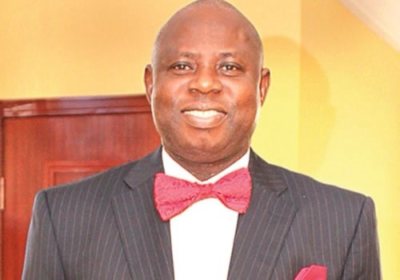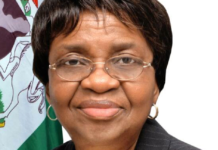All research works certainly have a purpose behind them but not all of them can be described as appropriate and rightly directed. A research work is purposeful and appropriate when its outcome can be used to solve problems of national development.

National development is the ability of a country to improve the social welfare of the people by providing social amenities like good education, infrastructures, medical care and social services; while purposeful research is the process of arriving at dependable solutions to problems through the planned and systematic collection, analysis and interpretation of data.
The developed countries have taken great strides to ensure that their citizens enjoy good amenities and that is why we have constant emigration of our people to Europe and the United States of America, as they have developed a system that takes care of all inhabitants. These countries are the leaders in scientific breakthroughs, as well as technological and infrastructural development.
Conversely, the developing countries, as exemplified by Nigeria, are still backward in their developmental efforts and struggling with the basic needs of life. They have problems with virtually everything and they depend on the developed countries for infrastructures, medical care and education of their citizens.
Necessity of national development
National development is very critical to the survival and growth of any nation. According to the Kothari Commission (1964-66), it is hinged on six basic features, which include confidence in nation, continuous rise in standard of living of the masses, reduction of unemployment, equal opportunities for social, political and economic development, good and impartial administration and mutual understanding and sense of cooperation amongst the masses.
Thus, a country is said to be developed when it is able to provide a qualitative life for its citizens; when there is equitable distribution of wealth, provision of good healthcare, education, housing and other essential services that improve individual and collective quality of life.
Quite regrettably, Nigeria has failed to meet up with the development strides that can make it to be classified as a developed nation. In the last six decades, Nigeria keeps battling with the problems of development, in spite of huge human, material and natural resources in her possession. We have failed to meet up in all the indices of development and our rating remains very low, even among the nations that are less endowed.
Catalogue of failed plans
Interestingly, the failure of Nigeria over the years cannot be ascribed to lack of development plans; we have them in abundance. Two years after independence, we had the first National Development Plan Policy, which was formulated between 1962 and 1968, with the objectives of development opportunities in health, education, employment and improving access to the opportunities created.
This plan failed due to lack of resources, as only 14 per cent of the expected external funding was received; and there was the civil war, which led to the collapse of the First Republic. The second National Development Plan (1970 -1974) came after the civil war and priorities were on agriculture, industry, transport, manpower, defence, electricity, communication, water supply and provision of social services. From all indications, we really do not need to argue about the success or failure of this plan.
The third plan was for the period between 1975 and 1980 and was more ambitious than the previous ones, as there was emphasis on rural development, reactivation of the agricultural sector and so on, but like its predecessors, it failed to achieve the set targets.
The fourth development plan (1981-1985) aimed to achieve improvements in the living conditions of the populace, with targeted increase in the real income of the average citizen, more even distribution of income among individuals and a reduction in the level of unemployment and underdevelopment. Unfortunately, like the previous ones before it, the objectives of the plan were not achieved. The enormous wealth from oil exploration was not invested to build a viable industrial base for the country. Our leaders forgot the eternal words of Ernest Agyemang Yeboah that “They that milk the cow every day without feeding it well must never complain about how it keeps growing lean.”
All the programmes that were launched to harness these plans ended up in failure – from “Operation Feed the Nation” to “Green Revolution”. The various strategies that were adopted to put the country on the path of development did not produce any concrete result. These strategies included the Structural Adjustment Programme (SAP), Vision 2020, National Economic Empowerment and Development Strategy (NEEDS) and others, including the slogan from the current administration with Vision 2020. None of these has achieved anything that development connotes.
Forces of failure
We need to ask ourselves why these development plans have failed and the factors that are responsible for the failure. To start with, there is lack of executive capacity for the implementation or execution of the plans that are usually painstakingly drawn up. The people entrusted with the implementation usually lack the requisite authority or they are utterly incompetent.
The plans are usually drawn up without consultations that will address the need of the people from bottom up. There is no good governance and development plans become a mirage and unachievable, as it takes good leadership to translate ideas into reality. For most of our leaders, there is no sense of commitment.
According to Mimiko (1998), the leaders are only interested in access to power and privileges and not development. There is high level of corruption and indiscipline in all government agencies and departments, which serve as a bottleneck to the execution of development plans. How will a good plan become successful in the hands of corrupt executors?
The Nigerian economy is monolithic in terms of foreign exchange earning. The country rises and falls according to the dictates of the foreign oil market. Today, we are in trouble because of the low price of crude oil. If we can recall, in the 1950s and the 1960s, agriculture was the mainstay of the economy; but this was neglected as soon as we discovered oil in commercial quantities. Our economy is not diversified and that is why we suffer from dislocations and lack of sustainable development.
Backlash on health
It is not a surprise then that, today, Nigeria has one of the worst health indices in the world. We have failed in all measurements of development, which are Gross Domestic Product (GDP), Gross National Income (GNP), Life expectancy, Education index, Mean years of schooling index and Income Index put together as Human Development Index (HDI).
From the UNDP’s 2018 report, Nigeria’s HDI value was 0.534, which put the country in the low human development category and a positioning of 158 out of 189 countries. The most disturbing part is that this rating falls below that of the Democratic Republic of Congo (HDI = 0. 459), Ethiopia (HDI = 0.470) and the entire sub-Saharan Africa, at 0.507.
For the same measurement, the life expectancy at birth and the mean years of schooling was 54.3 years and 6.5 years respectively, compared with Congo (60.4 and 6.8), Ethiopia (66.2 and 2.8) and sub-Saharan Africa (61.2 and 5.7).
Clearly, Nigeria has sub-optimised her potential in terms of development. We have failed to provide the requisite leadership for Africa to move forward after the horrendous years of slavery and colonisation. The most worrisome aspect is: who cares? Certainly not the current leadership at all levels.
Panacea of research
Research is man’s ability to creatively or innovatively create new things that galvanise society into developmental strides. This creativity or innovativeness is anchored on research which is best described as the careful examination of an object and situation for the purpose of effecting societal development and improvement. It is a systematic work undertaken to increase the stock of knowledge including knowledge of humanity, culture and society, and the use of this stock of knowledge to define new applications (OECD, 2012).
According to Duncan Macdonald, “The common facts of today are the products of yesterday’s research”. Research has also been described as a “systematic and objective search for knowledge, to establish theories and prove the truth of ideas, hypotheses and assumptions.” These definitions or descriptions hold for all manners of research, whether social, educational or scientific. It is a search, according to Lucky Osaretin Odia (2013), which requires care and diligence for new facts.
In a seminar paper, Lucky Osaretin Odia (2013), asked four questions to link research work with national development. These are:
Is a nation’s level of development a function of research initiative structure?
Is a nation’s degree of progress a function of its research administrative efficiency?
Does the pattern/quality of research funding determine a nation’s level of development?
Does a nation’s level of investment in research and development determine its pace of advancement in science and technology?
All these questions were answered in the affirmative through a thoroughly conducted research. The linkage between research and national development has been proved in this paper and by other authorities before and after its publication.
(Continues next edition)











tadalafil cheap tadalafil – tadalafil online reviews generic tadalafil 20mg
International Journal Of Environmental Science And
Technology (Int J Environ Sci Te) Liane Moriarty Books To Movies
Feel free to visit my blog pdf base [canoportra1984.netlify.app]
I will immediately clutch your rss feed as I can’t in finding your e-mail subscription hyperlink or e-newsletter service. Do you have any? Please permit me understand so that I may subscribe. Thanks.